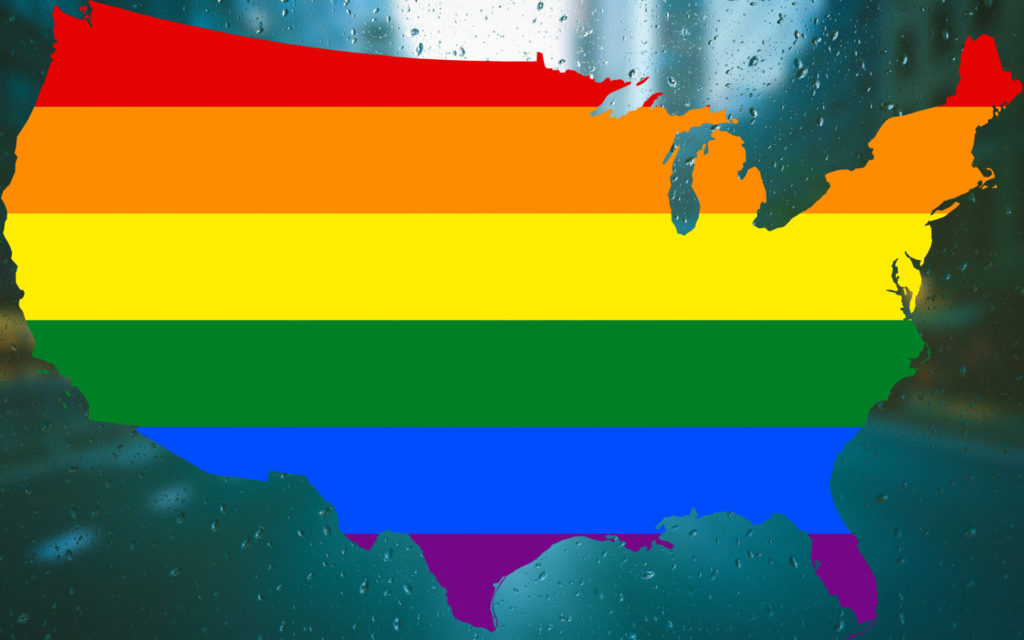
Refer to me as a member of the LGBT community, and I will probably correct you. Tell me I’m part of a bigger group with even more letters (LGBTQIA, etc.), and I’ll likely cringe.
I am a gay man, and as far as I’m concerned that’s a perfectly good label.
Why?
Because I’m not a lesbian, transgender, or bisexual — and beyond a basic human level, I don’t relate to those who are.
It all started when lesbians seceded from the union. Prior to the sexual revolution, those who practiced non-heterosexual behavior were called simply “homosexual” or “homophile.” After that came the term “gay” — which, if you’re a fan of old movies, you’ll know used to mean “happy.” (This was back in the day when “gay” was strictly an adjective. Popular culture has since added an “s” and turned it into a noun, of which I am not a fan.) In my opinion, being labeled “gay” is fine, but evidently lesbians weren’t happy being lumped together with us. And I can’t say I blame them. The social practices and mating rituals of homosexual women are very different from those of homosexual men. In my opinion, they are a completely different species.
But somehow this simple act of separation kicked off a wave of mass annexation. The term “gay and lesbian” worked so well that bisexuals wanted to be a part of it. Enter the initialism.
In the beginning it was simple enough: LGB or GLB, depending on the gender of the person using it. (As with a tennis score, you tend to put yourself first.) Then along came trans people and suddenly we had LGBT — or as I’ve heard it called, the “Gay BLT.” But once it became a multi-layered sandwich, there was no stopping it. And the more it grew, the harder it became to swallow. And identify with. The more groups it represented, the further away from my experience it drifted.
Now there’s LGBTQIAOP, which is just ridiculous. Especially when you break down the meaning. For the longest time I thought the “Q” stood for “queer” — a word I never use in relation to things homosexual because according to the dictionary it means “strange,” “odd,” “of a questionable nature,” or “mentally unbalanced.” Which is not how I wish to identify myself. (Labeling yourself abnormal does not invite acceptance. We might as well call ourselves “outcasts” or “freaks.” That’s what “queer” means to me. But I know I’m in the minority on this one.) But I have since learned that the “Q” can also stand for “questioning,” which means you can be a part of the Gay BLT simply by wondering if you’re gay. Evidently you can also be intersex, omnisexual, pansexual, or even asexual.
Do you understand what that means? This group of four letters that once unified people who are drawn to those of the same gender now represents people who are drawn to both genders, people who are drawn to everything, and people who aren’t sure who they’re drawn to, as well as people who self-identify as the opposite sex, have atypical or no sex organs, people who associate everything they do with sex, and people who don’t have sex at all.
Which reads like a bunch of dissimilar misfits grouped together. And if that’s the case, why don’t we throw in battered women and the Amish? They probably have sex, too. And what about WWII-era Japanese Americans? Then it could be LGBTQIAOPBAAWW2JA. Talk about a mouthful.
My concern isn’t about the enormity of the sandwich. It’s about the plain and simple fact that a gaggle of marginalized groups don’t automatically form a cohesive community. And all forcing them together does is turn specific things generic. How’s an African American supposed to feel special if he’s relegated to a group called BLAH (blacks, Latins, Asians, and Hispanics). They’re all so-called ethnic minorities, some might argue, why shouldn’t they be lumped together?
Here’s why: Because each group has its own set of wonderfully unique qualities and, more importantly, its own unique set of struggles. While some of the struggles of some groups will occasionally coincide, others won’t — no matter how much you try and force them to.
While every group represented by the Gay BLT is worthy of respect and compassion, the same goes for every group outside of it. And don’t tell me we’re united by our need for equality, because every person on the planet fights for equality in one way or another. To say that the desire for “equality” is limited to people who are gay, lesbian, transgender, etc., is a gross misuse of the word. My mother once told me she was a minority because she was a woman. Should we add women to the list? If we do, that literally means we now have a group comprising everyone on the planet other than straight-identified cis men. Which would then technically make straight-identified cis me the “minority,” right?
My point being, if you put together enough isolated groups, you’ll eventually represent the entire population. Is that the point? To lump all of our diversity together in the hopes of creating sameness? Don’t get me wrong, solidarity is nice, but diversity is amazing. And when you think about it, aren’t most wars the result of feeble-minded attempts to make people think alike and/or follow the same practices?
My suggestion is we stop adding letters in an attempt to cling to people just because their sexual orientation and practices differ from the heterosexual community and instead attach ourselves to society at large. There will always be minimizing of gay issues. Let’s not add to it by isolating ourselves with labels.
The original version of this story was first published on Gay.com Daily.
